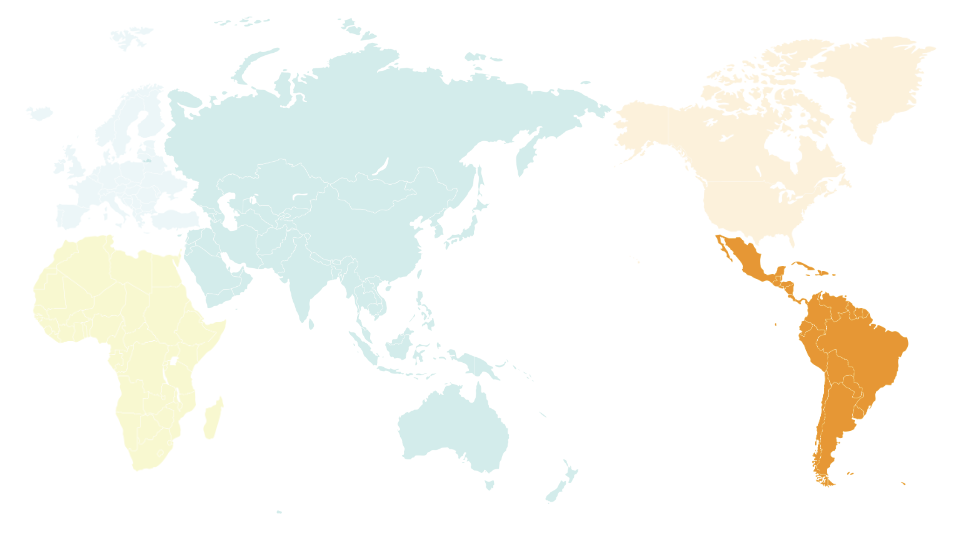Main Theme
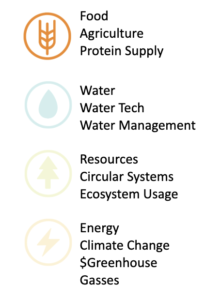
Sub-theme: Social inclusion; urban agriculture, vertical farming.
Abstract
Brazil is the world’s fourth-largest food exporter and has the sufficient production capacity to meet its internal and external demands. Nevertheless, over 61 million Brazilians live in some type of food insecurity.
As part of the Zero Hunger strategy, many non-profit organizations (NPOs) and civil organizations started to take action. “Cidades Sem Fome” (Cities without hunger in English) is a Brazilian NPO that promotes food security and social inclusion through urban agriculture. The organization was founded in 2004 in São Paulo by agronomists, architects, and social workers. Their innovative approach consists in reclaiming unused private and public spaces to use them as urban gardens.
Urban agriculture could potentially offer solutions to the future food crisis: 1) It reduces the carbon footprint of food by bringing it closer to consumers; 2) it is vital to transition to a circular global economy because it reuses urban resources; and 3) it can reduce poverty, address inequities, and improve nutrition and well-being.
This case study will take a closer look at “Cidades Sem Fome” and a general look at the food insecurity situation in Brazil.
Sustainable Development Goals Chart

Main Highlights
Problem
- Brazil is the world’s fourth-largest food exporter, with sufficient production capacity to meet internal and external demands. Nevertheless, over 61 million Brazilians live in some type of food insecurity, according to a recent survey by the Food and Agriculture Organization (FAO).
Context
- Brazil’s achievements in hunger and poverty reduction are widely considered to be the results of pro-poor policies introduced during the presidency of Luiz Inácio Lula da Silva, including Fome Zero (Zero Hunger).
- This national cross-sectoral strategy was launched in 2003.
Solution
- Strategies like Fome Zero have had a cascade effect on Brazilian efforts on food security.
- “Cidades Sem Fome” is a Brazilian non-profit organization that aims to promote food security and social inclusion through urban agriculture. The organization was founded in 2004 in São Paulo by agronomists, architects, and social workers.
Impact statement
- Twenty years ago, “Cidades sem fome” pioneered innovative urban agriculture techniques that reduce greenhouse gas emissions (GHE) and contribute to sustainable development, such as vertical gardens, agroforestry systems, and composting.
- The organization has helped to establish more than 50 community gardens in various cities across Brazil.
Systems perspective
Brazil faces significant challenges reconciling agricultural-production practices with food and nutritional security concerns, particularly environmental matters and their impact on food safety. Brazil is the world’s first agrochemical consumer and the second largest GMO producer. Regulating related practices and consolidating the incentives and support programs to agroecological models is a vital necessity.
Case Overview
- 33.1 million Brazilians live in hunger.
Brazil has a population of over 214 million and is the largest country in South America in terms of area and population. According to the World Bank, “In 2020, the country suffered its worst economic downturn due to the COVID-19 pandemic. However, the country’s fiscal response prevented increased poverty by implementing a large cash transfer program. Poverty decreased to 18.7 percent (based on the US$6.85 line) compared to 26.2 percent in 2019 – a change equivalent to 15.3 million fewer people in poverty. Unfortunately, Brazil’s economic recovery in 2021 (4.6 percent in real terms) could not prevent a rebound in poverty.”
According to the FAO, there are two categories for food insecurity:
- Moderate food insecurity is generally associated with the inability to eat healthy, nutritious diets regularly.
- Severe food insecurity is more strongly related to insufficient food (energy) and, therefore, strongly related to undernourishment or hunger.
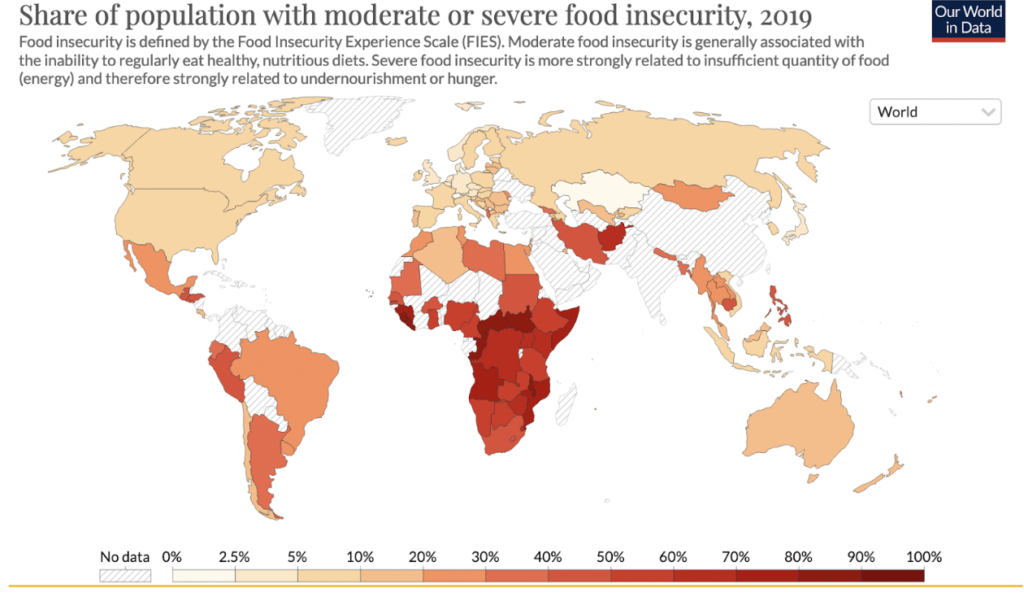
Image: Share of population with moderate or severe food insecurity in 2019. Source: Our World in Data.
According to Oxfam, “Access to food, not production, is the primary problem (for Brazil). Millions of people simply have too little income to buy adequate food. This is exacerbated by geographical variance in food production. Around 90 percent of Brazil’s total food production is concentrated in the south, southeast and southern parts of the central western region. However, 60 percent of food-insecure people live in northern and northeastern Brazil (FAO 2010)”.
- Policies to reduce food insecurity: imperative
Public policies related to food security can affect the ability of individuals to afford and access healthy and nutritious food, particularly for low-income households.
For example, policies related to food assistance programs such as the “Zero Hunger” (Fome Zero) public policy (launched in Brazil in 2003 by the government of President Luiz Inácio Lula da Silva) aimed to tackle food insecurity and poverty by providing access to food for all Brazilians, with a focus on low-income families.
The Zero Hunger policy was a multi-faceted approach that included a range of initiatives and programs to address the root causes of hunger and poverty in Brazil. Some of the critical components of the policy included the following:
- Bolsa Família: A conditional cash transfer program that provides financial assistance to low-income families in exchange for keeping their children in school and meeting health and nutrition requirements.
- School Feeding Program: A program that provides healthy meals to students in public schools across Brazil, focusing on using locally sourced food to support small-scale farmers and promote local food systems.
- Family Farming: A program that supports small-scale farmers and promotes sustainable agriculture practices, focusing on increasing food production and income generation in rural areas.
- Food Acquisition Program: A program that purchases surplus food from family farmers and distributes it to social assistance programs, including school feeding programs and food banks.
- National Plan for Agroecology and Organic Production: A program that promotes agroecology and organic farming practices, focusing on sustainable agriculture and food production.
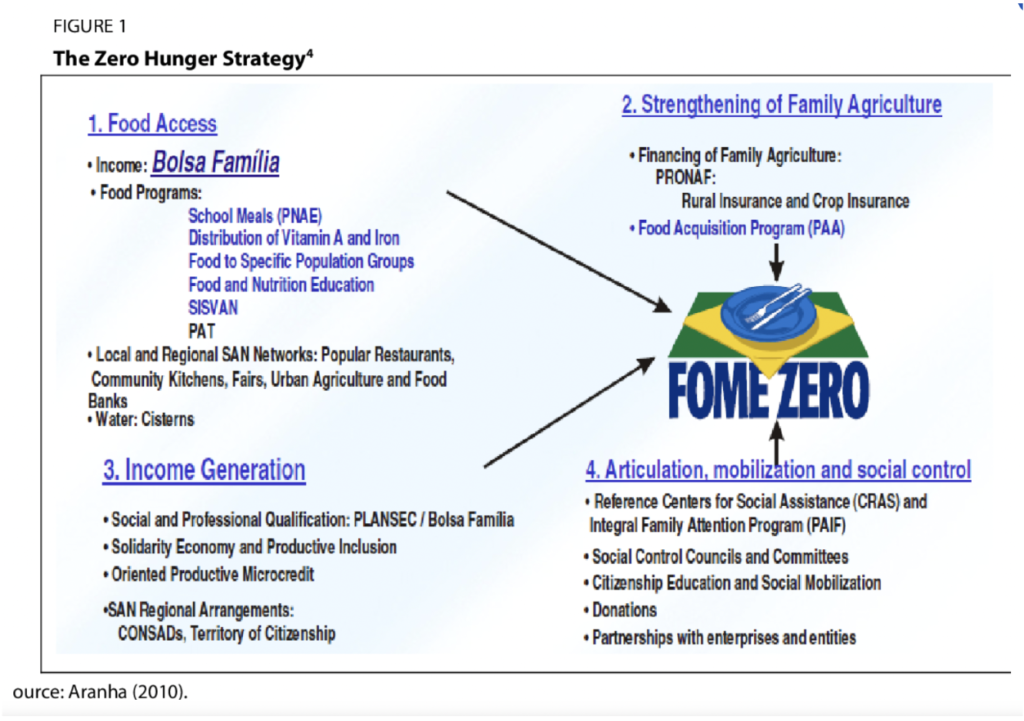
Figure: The Zero Hunger Strategy. Source: Aranha.
- “Cidades Sem Fome” (Cities Without Hunger): Articulating a national strategy with an innovative approach
As part of the Zero Hunger strategy, many NPOs and civil organizations started to take action on food insecurity, and “Cidades Sem Fome” is one of them.
“Cidades Sem Fome” is a Brazilian NPO that promotes food security and social inclusion through urban agriculture. The organization was founded in 2004 in São Paulo by agronomists, architects, and social workers.
According to the UN, in 2050, 70 percent of the population will live in urban areas, and 80% of the food will be consumed in cities.
The organization’s main objective is to reduce hunger and poverty in urban areas by promoting sustainable agriculture practices in unused spaces such as vacant lots, rooftops, and walls of buildings. The organization trains and empowers residents to grow their food, providing them with the necessary tools, education, and resources.
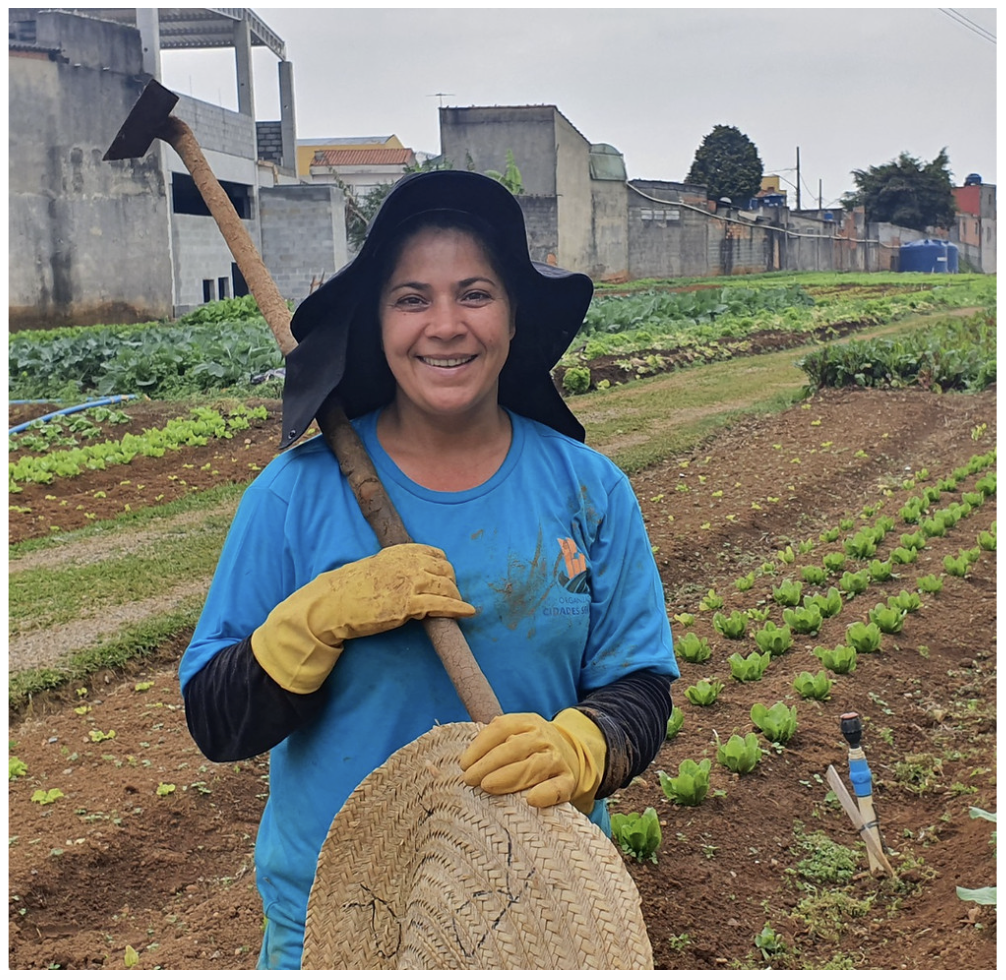
Image: A member of “Cidades Sem Fome” member harvesting vegetables in an unused terrain in Sao Paulo. Source: Cidades Sem Fome.
Of all the actions taken by “Cidades Sem Fome,” this case study aims to recognize the innovative approach of the “Urban gardens” initiative. This innovative approach reclaims unused spaces in Sao Paulo by using them as urban gardens harvested by well-known community members. According to Cidades Sem Fome, “Reclaiming and harvesting in unused spaces allow room for tackling at-risk housing settlements, environmental destruction, breeding grounds for dengue mosquitoes, and the emergence of violence”
- How does it work?
After locating an unused terrain, the organization provides technical assistance and training to community members on sustainable farming practices, soil preparation, irrigation, and crop selection, among other topics.
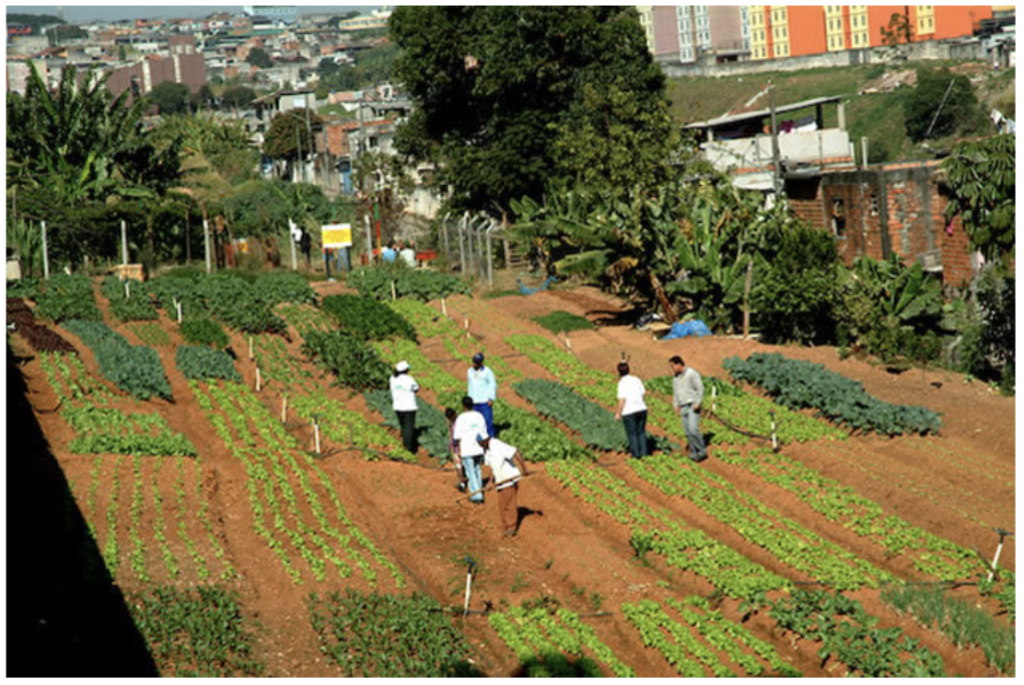
Members of “Cidades Sem Fome” providing technical assistance to the local community.
Source: Tudu sobre plantas.
The harvest produced is then distributed to residents, community kitchens, schools, and food banks, providing fresh and healthy food options to those who may not have easy access. Additionally, the project creates income generation and skill-building opportunities for residents through selling surplus produce and developing small businesses.
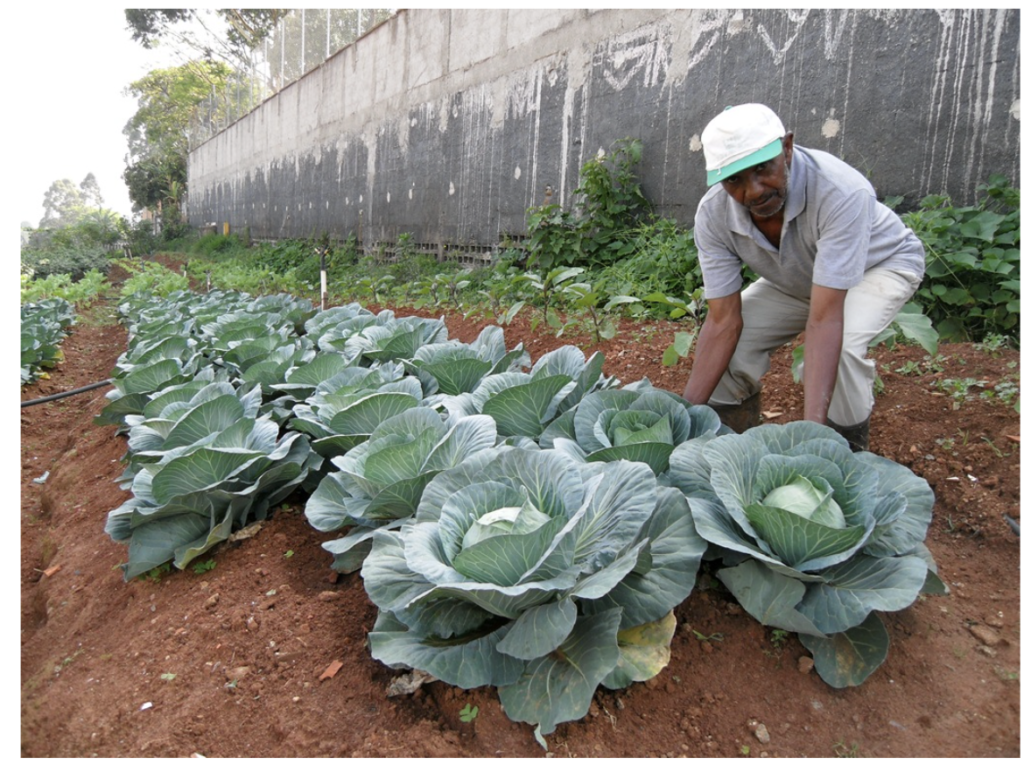
Image: Vegetable gardens like the one in São Miguel generate employment and quality food for the community. Source: Pensamento Verde.
Impact Statement
“Cidades Sem Fome’s” Urban Agriculture Project has successfully transformed urban spaces into productive gardens and farms and has helped increase food security and promote sustainable agriculture practices in low-income communities. The organization has implemented the project in several cities across Brazil, including São Paulo, Salvador, and Recife. It has also provided technical assistance to organizations and communities interested in implementing similar projects.
“Cidades sem fome” has achieved several accomplishments since its founding in 2004. Some of its most significant achievements include
- Providing food security: The organization has helped transform over 50 unused spaces into community gardens in various cities across Brazil.
- They have trained over 2,000 people in sustainable urban agriculture practices, providing them with skills that they can use to start their businesses or find employment in the green economy.
- The organization has worked with marginalized communities, including women, youth, and people with disabilities.
- “Cidades sem fome” has received numerous awards for its work, including the World Habitat Award, the Dubai International Award for Best Practices to Improve the Living Environment, and the Social Entrepreneurship Award from the Schwab Foundation.
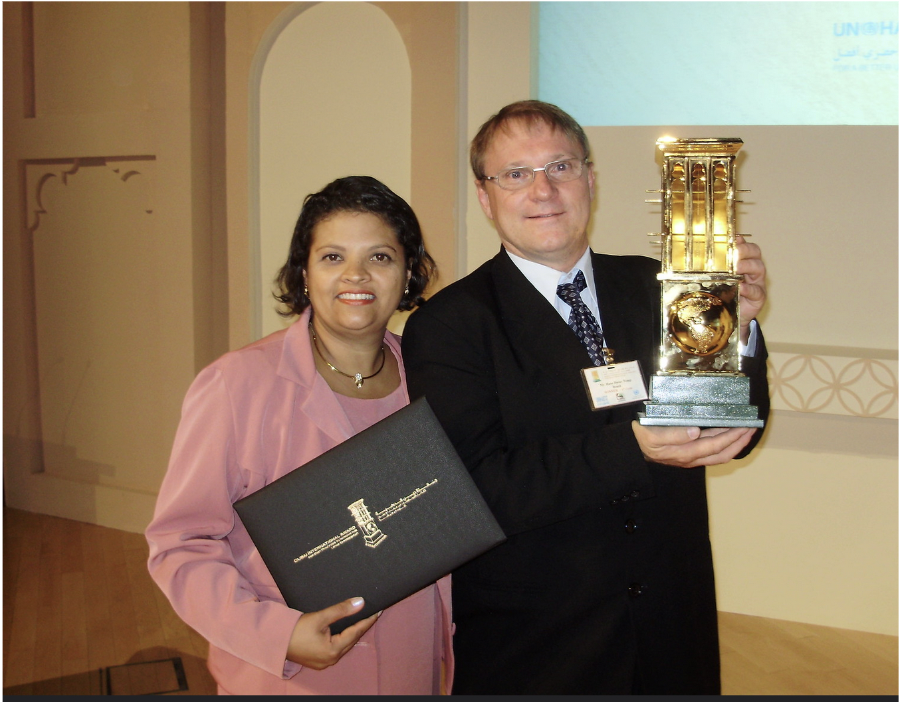
Cidades Sem Fome founder, Hans Dieter Temp, received the Dubai International Award for Best Practices to Improve the Living Environment. Source: “Cidades Sem Fome”
Systems Perspective
Food insecurity is a global problem affecting people in developed and developing countries. Addressing the issue worldwide requires a coordinated effort from governments, international organizations, and civil society.
However, Brazil faces significant challenges reconciling agricultural-production practices with food and nutritional security concerns, particularly environmental matters and their impact on food safety. Brazil is the world’s first agrochemical consumer and the second largest GMO producer. Regulating related practices and consolidating the incentives and support programs to agroecological models is necessary.
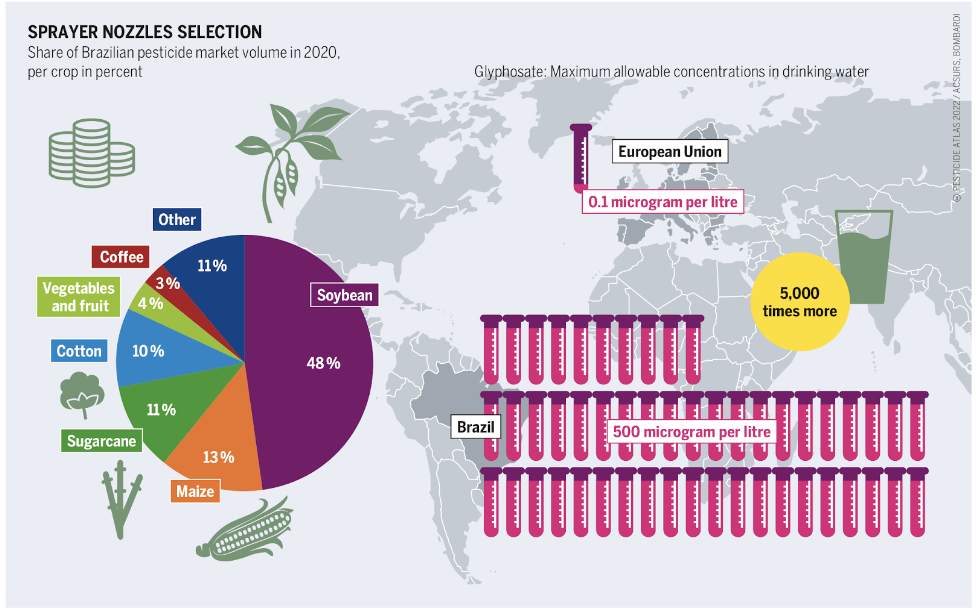
Image: Glyphosate is classified by the WHO as probably carcinogenic. It is one of the best-selling pesticides in Brazil – almost 200,000 tonnes were sold in 2018. Source: EU. Boell.
Links and Contact Information
Official Website
Contact information
Rua Prof. José Décio Machado Gaia, 20A – Sala 02. São Mateus, Zona Leste | São Paulo/SP – Brasil
Email: cidadessemfome@uol.com.br
Phone number:
+55 11 2735 4842
+55 11 9 9820 5784
More links
Case by: 4Revs Researcher Christopher Brosse | April 2023

